|
Lately I've been talking to a lot of clients about how to get better sleep. Clearly, poor sleep can have a huge impact on our energy levels and ability to live the lives we desire. Here is a handy checklist on how to optimize your bedroom environment to get the best sleep possible. Perhaps there is one technique you've missed that could make all the difference. If you'd like to talk about your sleep challenges and naturally solve them, please get in touch. I take a holistic, whole-person approach to help people reliably get the best sleep possible. How to Create an Optimal Sleep Environment
0 Comments
Many of the people I work with who have digestive issues are looking for a holistic approach to support themselves and their guts. Eating foods that are healing to the gut is important, as is testing to determine the root cause of gut issues so that they can be naturally healed. Movement practices and those that help calm the nervous system also contribute to a well functioning gut. That's why I love yoga as a supportive practice to balance the gut and reduce or eliminate symptoms. Research suggests that regular yoga practice may help alleviate digestive issues; decrease irritable bowel syndrome (IBS) severity, bowel symptoms, and anxiety; as well as improve physical functioning and quality of life in individuals who have been diagnosed with IBS or have digestive and elimination challenges. I share some of the top yoga poses for digestion in the table below. References
1. Schumann, D., Anheyer, D., Lauche, R., Dobos, G., Langhorst, J., & Cramer, H. (2016). Effect of yoga in the therapy of irritable bowel syndrome: A Systematic review. Clinical Gastroenterology and Hepatology, 14(12), 1720–1731. 2. Taneja, I., Deepak, K. K., Poojary, G., Acharya, I. N., Pandey, R. M., & Sharma, M. P. (2004). Yogic versus conventional treatment in diarrhea-predominant irritable bowel syndrome: a randomized control study. Applied psychophysiology and biofeedback, 29(1), 19–33. Has a health challenge been plaguing you?
Perhaps it’s something that diminishes your quality of life. Maybe it keeps you from really “going for” what you want, or pursuing a dream. Or it just makes you feel less than 100%. Perhaps needing to concern yourself with your health or your body multiple times in the day is kind of an energy suck. But you haven’t really addressed it yet. There never seems to be enough time. There are too many people and things to take care of! Perhaps you’re prioritizing other people/other things first (whether kids, family, work, service projects, etc.) Or busyness has taken over. Don’t get me wrong. Life these days is INTENSE. In addition to all that’s happening in your personal sphere, all the things going on in the world don’t make it any easier to focus on yourself. It’s understandable stuff gets in the way. But what’s the cost? I see people in my practice all the time who have allowed this to go on too long. They’re wearing themselves down so they don’t have any energy left to give. They’re pouring from an empty cup. And then they crash. Depleting ourselves, or ignoring a health challenge in service of other priorities ultimately catches up with us. I know it can be hard to carve out time to care for ourselves first, especially during busy or challenging times. But it’s ESSENTIAL. Imagine what it would be like to…
I recently had the chance to practice tending to my health and body during a stressful time of transition. I was moving, experiencing health challenges, in a demanding training program, and continuing to be of service to my clients. A sure recipe for burnout had I not been mindful. Upon first glance, it might not have seemed like I actually had the time to truly take care of myself. But I prioritized it. And I used similar approaches to those that I share with my clients. Here are some of the things I did: Meditation. Life just doesn’t go very well when I don’t do this. It allows my body and mind to calm, and just makes the day better. Gratitude. Even finding just 3 things to be grateful for. Gratitude truly primes our minds and cells for healing. Schedule self-care first. Move mountains to make it happen if you have to. Time in Nature. Mindful connection with the land and self is so healing. (If you’re in the Bay Area join me July 23) Eat well. Many more veggies. Little to no sugar. Limiting alcohol. Protein with every meal. And at least 64 ounces of water per day are great places to start. Invest in health partners. I am here for you. Recently, I also sought support from acupuncturists, chiropractors, spiritual counselors, and massage therapists (ask me for referrals) Prayer. I do affirmative prayer, knowing that the health and life I desire is already present and can fully reveal itself at any time. Supplements. I use and recommend supplements short-term to help bodies get back into balance. Or longer term to make up for shortfalls in eating and lifestyle (ask me if you need personalized advice) Support. Ask for support from others so you can get more time for yourself and your health. Think expansively - family, friends, work colleagues and more. It can be just as big of a gift to others to ask them to support you as you receive from them (I love babysitting my friend’s 4-year-old, and I’m grateful for all the people who helped with our move!) I didn’t do all of these things daily, and I recommend to my clients that they slowly build into their lifestyle caring for their body, heart and spirit. Let me know if you plan to try any of the practices I mentioned (or plan to do them more often). It helps to have a GUIDE to help you get to the root cause of your health challenge, so that the actions you take to solve it are personalized to you. This helps you make the most of the precious time you spend tending to your health. So you don’t have to guess about the right approach. Or buy a bucket of supplements because you heard they might help. And there is no need to spend a bunch of money on programs that don’t make a difference for you. If you or someone you know is ready to naturally release a health challenge that’s getting in the way of living the healthy, joyful and fulfilling life they know is possible, please get in touch. Warmly, Dawn Now that spring is here and pandemic restrictions are loosening a bit (and perhaps after 2+ years we’re just tired of our own cooking) more people are eating out, getting takeout, or dining with friends.
But for people with digestive problems, eating away from home can be a THING. They wonder…
Often, they’ve become scared of eating. Or at least of eating away from home. Or they aren’t clear about which foods they’ll react to and which ones they won’t, so they pick this narrow sphere of foods that they know are usually “safe.” As a result, leaving home to eat doesn’t seem like an option. And that can become sad and isolating. Fortunately, it doesn’t have to be this way. Imagine what it would be like to…
HOW is this possible, you might ask? Because I do things a little differently. Instead of… …restricting foods forever, …taking a bunch of supplements that sort of suppress symptoms (but you need to stay on them forever) …taking meds that don’t really work anyway …restricting whole categories of foods forever We get to the bottom of what’s actually going on inside YOUR gut. We test instead of guessing. We use food therapeutically to guide your body back into balance, so you can expand the number of foods that actually make you FEEL GOOD. I offer special techniques to break the gut-stress cycle, which is one overlooked issue that often keeps people stuck. I look at the big picture of what’s going on with your gut, and make PERSONALIZED recommendations to naturally heal your gut. So digestive distress NATURALLY DISAPEARS. Greater freedom returns. New possibilities open up – whether it’s eating away from home, taking on that new project, or trying something new that previously felt out of reach because of your gut issues. After working with me, clients significantly reduce symptoms such as bloating, pain, food reactions and BM problems, and are often able to naturally and fully heal their guts. If you or someone you know has gut issues that are keeping them from eating away from home or doing the things they love, get in touch or book a time to chat. P.S. Get in touch if you are tired of dealing with gut symptoms that are impacting your well-being and quality of life. Ever spent late nights on Google looking for health information? I hear this all the time from people dealing with bloating, pain, food reactions and BM problems.
They’ve been exhausting themselves by combing through infinite volumes of information, or watching endless reels and videos wondering…
That the “magic bullet” is really comprised of multiple components, and that your magic bullet is going to look different from everyone else’s. That’s why “Dr. Google” and influencers who try to convince you that this one thing will change your life forever are often wrong, leaving you feeling disappointed and defeated. Because we are each unique, all the way down to the body’s biochemistry. That’s why it’s important to work with an expert who can suss out what’s really going to work for you personally. Someone who can test, not guess at the right solution to heal your gut. Plus, it can often be a lonely road working with gut issues. It’s not always something brought up at the dinner table! It can be so healing to have the support of a group…to talk freely, get ideas from others, go through it together. Research has proven that people with more social support have better health outcomes. That’s why I created the Heal Your Gut Naturally program. It’s combines the support and magic of a group with private, personalized assessments and specific recommendations so you can naturally and fully heal your gut. Guided by me, who has helped hundreds of people heal their guts over the past 10 years. Plus, I use testing to understand what’s going on with your gut. No more guessing or wasting time wondering if the latest “silver bullet” is the thing that’s finally going to work for you. I also include specific practices to break the gut-stress cycle, which is often the thing that keeps people stuck in digestive distress. How would it feel to…
My clients are able to stop spending late nights on the Internet asking Dr. Google for help. If you’d like to learn more about how you can too, while substantially improving your gut symptoms, Tired Of Going From Doctor To Doctor With No Good Answers On How To Resolve Your Gut Issues?3/8/2022 “I am so happy someone referred me to Dawn. I had been navigating from MD to MD trying to figure out how to get treated for something that Dawn understood immediately. She guided me through a plan on diet and supplements that helped my body actually heal from what I literally thought may have been something modern medicine could not handle.” ~Allen I can’t believe how many of my clients have been in a similar situation. Visiting doctor after doctor, seeking solutions – and relief – for gut problems like pain, bloating, food reactions and BM irregularities. And often coming up with…not much. Some were given laxatives, or anti-diarrhea or anti-acid medications, meant to be taken for the long haul. Some of my clients were given medications that didn’t really work at all. Some were told to not eat so-called “gassy” foods like broccoli, cauliflower, beans, lentils and more…and to do that forever. Some were told it was all in their heads. Some were outright dismissed. (This doesn’t mean that western docs can’t help, and many of them truly do). But a large number of my clients were told that they’d just have to try to “manage” this forever. Or worse yet, “just live with it.” So they kept avoiding social gatherings, dinners out, walks in nature, long trips in the car, and events they wanted to go to…because they felt unwell and uncomfortable, and didn’t know whether their guts would act up. They were discouraged. They lost hope. But some little part of them just KNEW that there was another solution. Perhaps even a way that they could fully and naturally RESOLVE their gut issues, instead of attempting to just “manage” or “live with” them. So they kept searching. And eventually they found their way to me. Sometimes after years. Sometimes after decades. It’s such a bummer that people had to suffer that long, but the good news is that once we started working together, most people were naturally able to resolve their gut issues. How did this happen when previously they had been told to “just live with it? Because my approach is different. The lens I use in working with people is to HEAL their gut issues, rather than simply “managing” them. It’s a different paradigm.
And you know what? Working together, we can RESOLVE gut issues. Symptoms naturally DISAPPEAR. It’s wonderful to witness people restoring health, and opening up new possibilities for their lives.
No more restrictive diets. No more saying no to things they wanted to do because they were worried their guts would act up. And the energy suck from worrying about their health? Gone. Now, they can really “go for” things they want in life. Like my clients who started businesses. Or got promotions at work. Or got engaged. Or ran that marathon. Or got pregnant. Or took that trip they’d always wanted to take. Heck, now they can even take that longer car or public-transit ride they’d previously said no to. They go out to dinner. They don’t say no to social engagements. They engage in more activities that bring them joy. They are more present with their loved ones. They have so much more freedom. My gut-healing solutions are thorough. And holistic. And they’re also personalized to you. So you can actually heal your gut. And ultimately, go for the things that matter most to you, without worrying about your health getting in the way. Now, I’m not the Gut God or anything. While I do have a lot of experience helping people to heal their digestive issues, my programs also invite you to open up more fully to trusting yourself and your intuition. Ultimately, you are the expert on you, and we work collaboratively as a team. Helping people to heal their guts -- rather than just settling for poor symptom-management -- is one of the things I do every day with people who have been searching and not finding solutions that work. It’s also the big focus in my Heal Your Gut Naturally program, which begins later this month. If you (or someone you know) is interested in learning more, email me or book a time to chat so we can mutually see if it’s a good fit. In health, Dawn P.S. We’re currently enrolling for the Heal Your Gut Naturally program, which begins this month. Get in touch if you’re curious whether it might be a fit for you. When bloating, constipation, pain or other gut issues are making you feel uncomfortable in your body, afraid to eat, or saying no to fun activities, one of the first solutions most folks try is eliminating "problem foods" from their diet.
The problem is that these same "problem foods" are usually some of your favorites (did I hear you say bread? Or chocolate chip cookies?). And so-called “problem foods” might also be ones that are considered healthy (like supposedly “gassy foods” such as cauliflower, broccoli or beans). Perhaps your doctor, nutritionist, or somebody on the Internet suggested a particular “diet,” or eliminating certain food groups (you name it…grains, FODMAPs, sugar, beans, brassica veggies, etc.) because that would help you manage your symptoms. And maybe they even told you that you can never eat these things again. So now you’re trying to cut out your favorite foods AND foods that are supposed to be good for you. You’re avoiding foods that you think might be causing your gut symptoms, but you don’t even know for certain if you really have to. Or if it’s actually helping. And then you lose the joy in food and in eating. Maybe you had a cool recipe or two at the beginning, but now you’re utterly bored from following such a rigid diet. You might even be feeling depressed because you might never, ever get to eat your favorite foods again. And you’re wondering, “Can I stand doing this til the end of time? Is it even worth it?” But the real question is - “Do I really need to give this food up in the first place?” Maybe not. Here is what many healthcare providers and “experts” on the Internet are missing when they tell you to avoid a food indefinitely:
Ultimately, using my approach, my clients dramatically EXPAND their food choices AND feel good in their guts at the same time. No more sacrificing the pleasure and freedom of eating for unknown gain. Why? I take an expansive, whole-body, whole-life look at root causes – and solutions -- for your gut issues, instead of using an “avoid these foods, just cuz” mentality. I simply don’t believe that one size fits all, so I personalize a solution just for you. I use specialized lab testing so we can understand exactly what’s happening in your gut. I think of food therapeutically, with the aim of it helping you heal your gut. And who’s really talking about the gut-stress cycle, how it impacts your day-to-day experience (i.e. causing gut symptoms to act up even if you’re doing “everything else right”)? Let alone offering a solution that really works. It’s an integral part of fully healing. Of course, there are some conditions that require avoidance of particular foods for the long run, such as someone with celiac disease avoiding gluten for life in order to fully recover their health. But many people with chronic digestive issues can actually heal their gut so symptoms disappear, and eat whatever they want (or at least almost whatever they want). So they can fully participate in their lives again. If you want to truly heal your gut, without forever eliminating a long list of foods, I’m creating a program that combines personalized guidance, testing and the support of a group dealing with gut issues. It will be a small group of people who are over the distress of trying to figure out how to resolve their digestive problems by trying every “diet” that someone suggests, and spending late nights on the Internet. In less than 2 months, you’ll significantly reduce bloating, gut pain, bowel problems and food reactions, and know the exact way to naturally heal your gut issues at their root cause. Without giving up your favorite foods forever. If you’re interested in learning more, drop me a line here and I’ll send you some details. Now that trying to protect ourselves against COVID is part of our “new normal,” at least for now, I’m sure I’m not alone in wondering what I can do to keep myself healthy during the pandemic. Simpler is better, as adopting even the smallest new habits can feel like a huge undertaking right now. That’s why I was excited to see a new population-based research study out of Israel that found that “suboptimal” Vitamin D levels appear to be an “independent risk factor” for acquiring a COVID-19 infection (1). So in addition to wearing my mask, washing my hands, and physical distancing, it seems that being mindful of my Vitamin D levels is something I can do to support my health during the pandemic.
What are “suboptimal” levels of Vitamin D? According to the study, “‘suboptimal’ or ‘low’ plasma 25(OH)D level was defined as plasma 25‐hydroxyvitamin D, or 25(OH)D, concentration below the level of 30 ng/mL. (1)” So, dig out any lab results you have from the past year and see if Vitamin D was measured. If your 25(OH) Vitamin D levels were below 30 ng/ml, you may want to follow the tips below. If you don’t have the results, consider asking your doctor if he/she would be willing to run that test. If your doctor is unwilling to measure your Vitamin D levels, get in touch and we’ll connect you with a lab that can measure Vitamin D for you. How to increase Vitamin D levels Ok, let’s say your Vitamin D levels are low, or you just want to do what you can to reduce your risks during the pandemic. How to build up vitamin D levels? Get some sun. Seems simple right? For some people it is. The body converts sunlight to usable Vitamin D. However, for some people this doesn’t happen, or it doesn’t happen as effectively as is needed to preserve Vitamin D levels. Many things can go wrong:
Eat Vitamin D-rich foods. Eating Vitamin D-rich foods is a great way to increase our body’s Vitamin D levels. Unfortunately, only a few foods naturally contain Vitamin D. I’d invite you to check out the list below and see if there is a food you could increase your intake of. Again, things can go wrong – if you’re not digesting well, especially fats, it’s hard for your body to absorb the Vitamin D in foods. Get in touch if you’d like to explore your digestive health. In the meantime, here are some foods to include (2): • Beef liver • Cheese • Egg yolk • Fatty fish (e.g., mackerel, salmon, and tuna) Supplement. Many people find it necessary to use nutritional supplements to keep their vitamin D levels above 30 ng/mL on their labs, thereby effectively supporting their immune systems. I find this to be a helpful solution for many of my clients. Supplement quality matters. Unfortunately, nutritional supplements are not well regulated, so what’s on the bottle may not be exactly what is inside. And the quality can be highly variable. It’s important to take high-quality supplements so you are sure they are actually helping you to achive your health goals. That’s why I only recommend medical-grade supplements and personally vet the brands. If you think it might be a good idea to supplement with Vitamin D, check out my recommendations. You can also take advantage of the same discount I offer my private clients. When supplementing with Vitamin D, be careful…as more, more, more is not necessarily better. Vitamin D does have a toxicity level (3). I’ve made recommendations for a good maintenance dosage here, but check in with me if you’re unsure about how much Vitamin D is right for you. Vitamin D is necessary for optimal immune function, as well as for strong bones and a healthy heart. It’s easy to get more D - follow the tips above and consider a high-quality Vitamin D supplement to be sure. References: 1. https://febs.onlinelibrary.wiley.com/doi/full/10.1111/febs.15495 2. https://www.ncbi.nlm.nih.gov/books/NBK56061/#ch3.s2 3. https://www.ncbi.nlm.nih.gov/pmc/articles/PMC6158375/ Image by Engin Akyurt from Pixabay Stress much this year? For me and most of the people I talk to, this has been among the most stressful years of our lives. And because the pandemic and social unrest – and the effects it has on our lives -- doesn’t seem to be calming anytime soon, it has me thinking about what we can do to stay as healthy as possible in spite of the stressors.
One of the problems of constant stress is a state of chronic “fight-or-flight” that has far reaching impact. Here’s a quick summary of our body’s stress response and what that means for health, followed by three really concrete practices to mitigate chronic fight-or-flight. Although we’ve evolved quite a bit from hunter-gatherers, whose common stressors were large animals chasing them, our stress responses have not evolved much – they are still quite primitive. When we’re stressed, the body releases hormones such as cortisol, which causes us to activate our sympathetic nervous systems and go into a “fight or flight” mode. This means our body is preparing to run -- as fast as possible -- from imminent danger. When we’re becoming upset by the news, struggling to home-school our children, or worrying about our safety if we leave our homes, we’re usually not running fast. Even so, our bodies engage what is referred to as the sympathetic nervous system. It reacts by slowing digestion, keeping blood glucose levels elevated, blocking reproduction, keeping our minds ultra-vigilant, and tensing our muscles so we’re ready for action. This impacts well-being in so many ways, including changes in mood and depressed immunity, in addition to the other problems just stated. We don’t need to be adding any fuel to the fire these days! The opposite of fight-or-flight mode is sometimes called “rest and digest,” “rest and restore,” or the “relaxation response.” When stress has passed or we’ve engaged in activities to calm our nervous systems, we activate the parasympathetic nervous system. This means our ability to digest returns, immune function begins to normalize, mood is stable, energy can be used for tasks at hand, we have a greater possibility of baby-making, muscles and brain relax, and more. Sounds good, right? So, given that the stressors of the world and our personal lives may not be lifting anytime soon, what is there to do? Here are three antidotes to chronic fight-or-flight. Eat three complete meals per day. I know this may seem like a simple concept, though it can sometimes be hard to execute. We’re home more, the fridge is nearby, grazing is happening. At 3 p.m. we think, I must have eaten the equivalent of two meals already, right? But what did you eat? Was it nutritious and complete (i.e. did it include protein, healthy fat, complex carbs, fiber, fresh/non-packaged food, any color?). If we’re skipping meals or binging on our latest sourdough creation, it can cause blood sugar imbalances, and add internal stress to all that we’re experiencing in our lives and the world. So stress becomes compounded. Making a habit of preparing and sitting down for a meal calms our nervous systems, fuels our bodies, provides normalcy and cadence to a day that might otherwise feel scattered. Your body can relax knowing it can count on you to feed and nourish it at regular intervals (try for a max of 5 hours between eating). Protein grounds us and blood sugar remains balanced if we eat regularly. Bonus if you take a deep breath and express gratitude for your meal before eating. In this way, you’re calming your system and not creating internal stress to go with your external stress. Connection Connection with others is an excellent antidote to stress. Quick explanation of one reason why: the hormone oxytocin is released when we connect in a loving or positively emotional way with another who feels safe, familiar or touches our hearts in some way. Oxytocin buffers stress. Much of the research on oxytocin has been centered around physical touch and physical connection - when we hug, pet and animal, share with others, it releases oxytocin. Activities that release oxytocin are especially important for women due to their hormonal makeup. Now, of course, many folks are way more isolated these days than ever before, which likely means our oxytocin levels are lower and stress levels even higher. So we have to get creative to combat chronic fight-or-flight. The neat thing is, although physical touch is the most effective way to release oxytocin, it is NOT required. Experts suggest that when meeting with someone via video, we can get to 80% oxytocin release (compared to in-person), provided we are making eye contact with the other person. During this time of physical distancing, connecting with others is important for so many reasons. And if you connect via video, you’ll also combat chronic fight-or-flight. Earthing Earthing, also referred to as Grounding, simply refers to the body being in contact with the Earth. It also happens to be an easy and free antidote to chronic fight-or-flight. The easiest way to practice Earthing is to take off your shoes and place your feet on the ground (dirt, grass, beach, etc). When the electrical frequencies of the body connect with the earth’s electrical energy, changes begin to happen. One change is the movement toward dominance of the parasympathetic nervous system (relaxation response), rather than the sympathetic nervous system (fight or flight). While there are many methods of engaging the relaxation response, summer is a great time of year to connect, body to earth, and quickly experience the calming effect it has (barring air quality issues if you live in a wildfire state like I do). Studies show that Earthing can normalize cortisol responses, making us more resilient when responding to stressors. These are difficult times. Everything seems to take extra effort, including self-care. If you’ve been working at it and are still not feeling great, get in touch for a complimentary chat to get immediate tips and learn what’s possible for your health. References: https://www.psychologytoday.com/us/blog/joyful-parenting/202003/how-secure-the-4-feel-good-chemicals-during-covid-19 https://www.miamiherald.com/news/coronavirus/article242200466.html https://www.apa.org/monitor/feb08/oxytocin https://debbielojaconovasquez.wordpress.com/2015/03/22/mirror-neurons-and-vegus-nerve-the-neurology-of-empathy-and-cooperation/ https://www.ncbi.nlm.nih.gov/pmc/articles/PMC4445577/ https://www.sciencedirect.com/science/article/pii/S1550830719305476 https://pdfs.semanticscholar.org/3125/ebd920ad367223aa3ad8419fe500bbb27d0d.pdf https://earthingcanada.ca/what-is-earthing/ Our guts are often overlooked in conversations about protecting ourselves against COVID-19, or minimizing impact if we do contract the virus. And yet, 70% of our immune function resides in our gut, and gut symptoms such as nausea and diarrhea are commonly experienced by people who have COVID-19. Sometimes gut problems are the only symptoms. What gives?
Because the coronavirus is new, we don’t have scores of longitudinal peer-reviewed studies to help us understand how the virus works, how to heal it, and what the long-term effects are. However, since we do know a lot about how viruses generally behave in the body, we can look at what is happening now and find correlations that give us clues on how to strengthen our resiliency against COVID-19. Gut-Immune Relationship Supporting and fortifying the gut is one way to support our immune systems. Gut bacteria provide immune modulation, so the presence and diversity of beneficial bacteria in our gut microbiome means we can be more effective in navigating whatever comes our way – whether bacteria, viruses, toxins, allergens, etc. Gut bacteria can influence whether our immune system is over- or under-responding. One of the features of COVID-19 that has been observed is a “cytokine storm” – in essence, an immune system hyper-response. Beneficial gut bacteria have been shown to modulate the immune reaction, and emerging research suggests that improving the composition of intestinal flora is a possible strategy to strengthen our resilience when it comes to COVID. How to Grow Beneficial Gut Bacteria Fortunately, there are some things we can do to feed our good gut bacteria! 1. Below is a list of foods that beneficial bacteria love to munch on, which helps them make a home in your gut.
2. Probiotics are an additional approach. I’d be happy to point you in the right direction regarding which probiotics are most effective and high-quality. 3. Exercise feeds beneficial bacteria as well – they need oxygen just like we do! Gut Testing How to know the status of your gut microbiome and beneficial bacteria you ask? Specialized stool testing is a great tool to find out. Knowing the specific status of your beneficial bacteria, not-so-beneficial or pathogenic bacteria/fungi/parasites, gut inflammation, and intestinal permeability (i.e. do you have “leaky gut”) allows us to fine-tune eating, lifestyle and probiotic/herb recommendations for optimal health and resilience. Get in touch if you’d like to learn more about how microbiome testing might help you. If you’re experiencing gut-related symptoms like bloating, constipation, stomach pain or reflux, it might be affecting your ability to become – or remain – your healthiest self. Feel free to book a complimentary chat with Dawn if you’d like to talk about your situation! References: https://www.ncbi.nlm.nih.gov/pmc/articles/PMC2515351/ http://med.stanford.edu/news/all-news/2020/04/stomach-complaints-common-in-covid-19-patients.html https://www.sciencedirect.com/science/article/pii/S0168170220304603 https://www.ncbi.nlm.nih.gov/pmc/articles/PMC5131922/ https://www.ncbi.nlm.nih.gov/pmc/articles/PMC7295895/ |
Dawn Preisendorf,
|
Location6536 Telegraph Ave. Suite A101
Oakland, CA, 94609 Work with us in Oakland, near Berkeley, or anywhere via Zoom. |
|

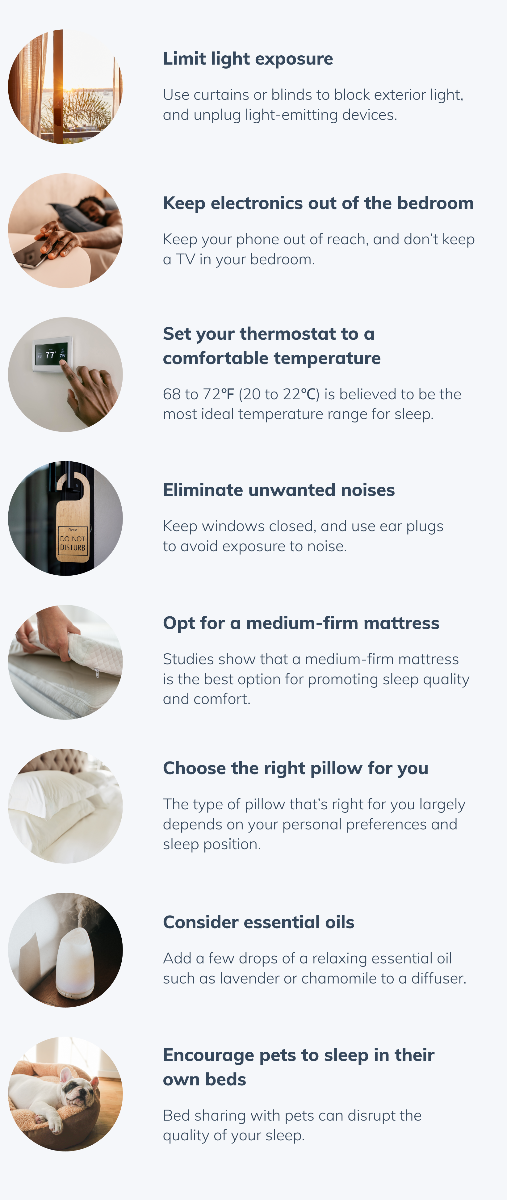
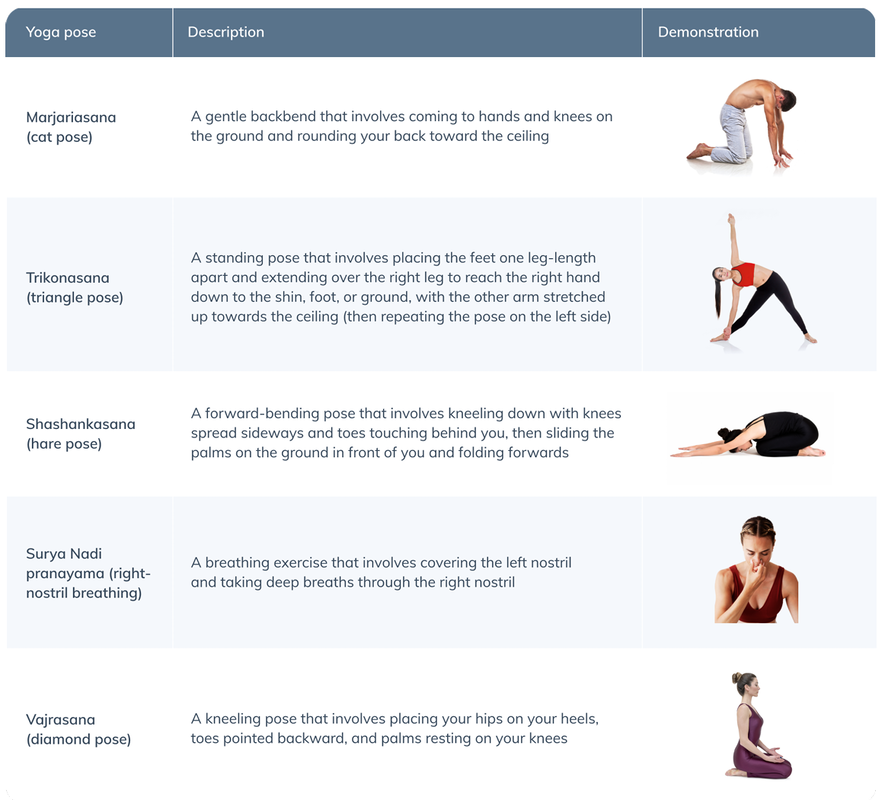
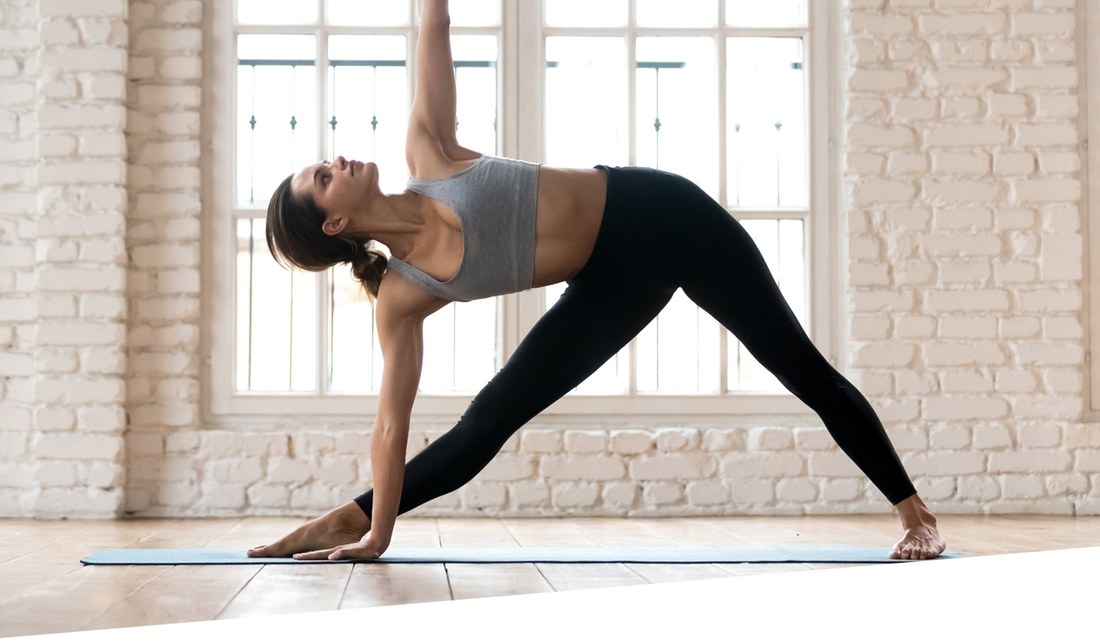



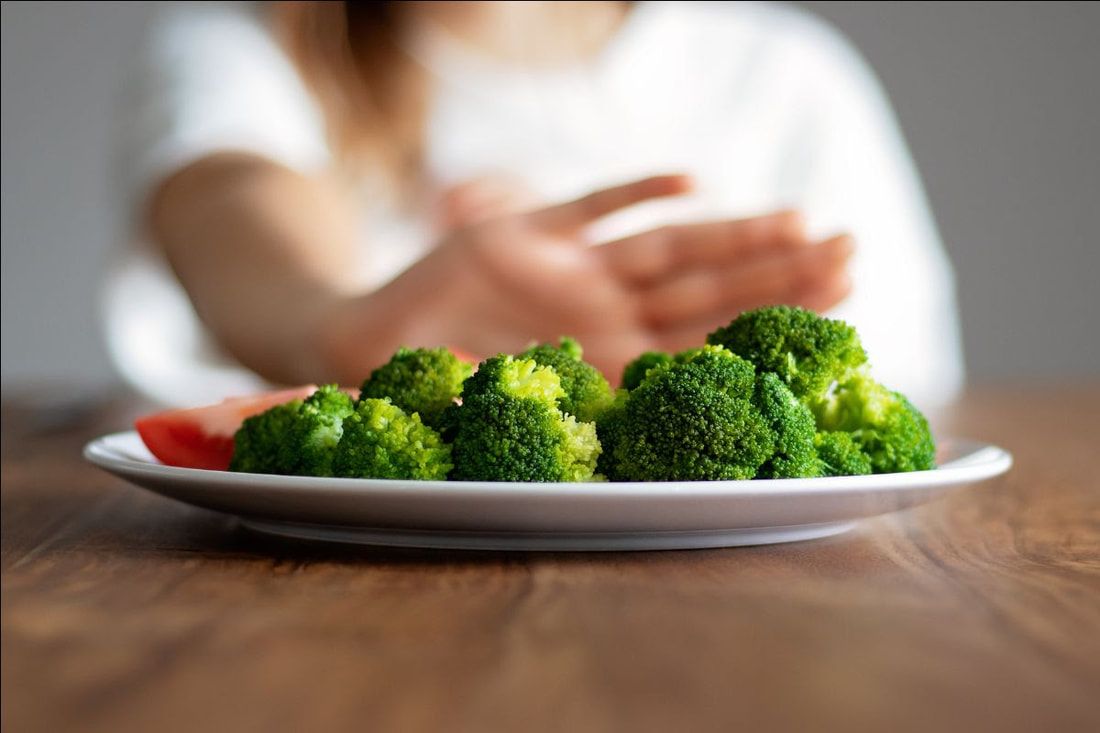
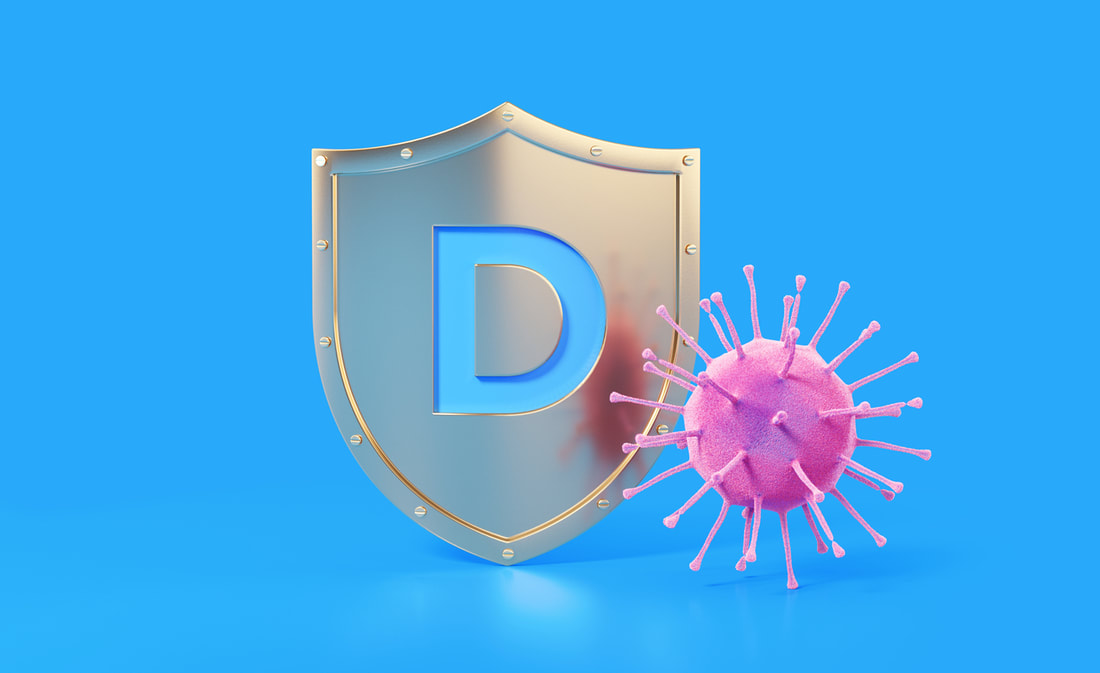

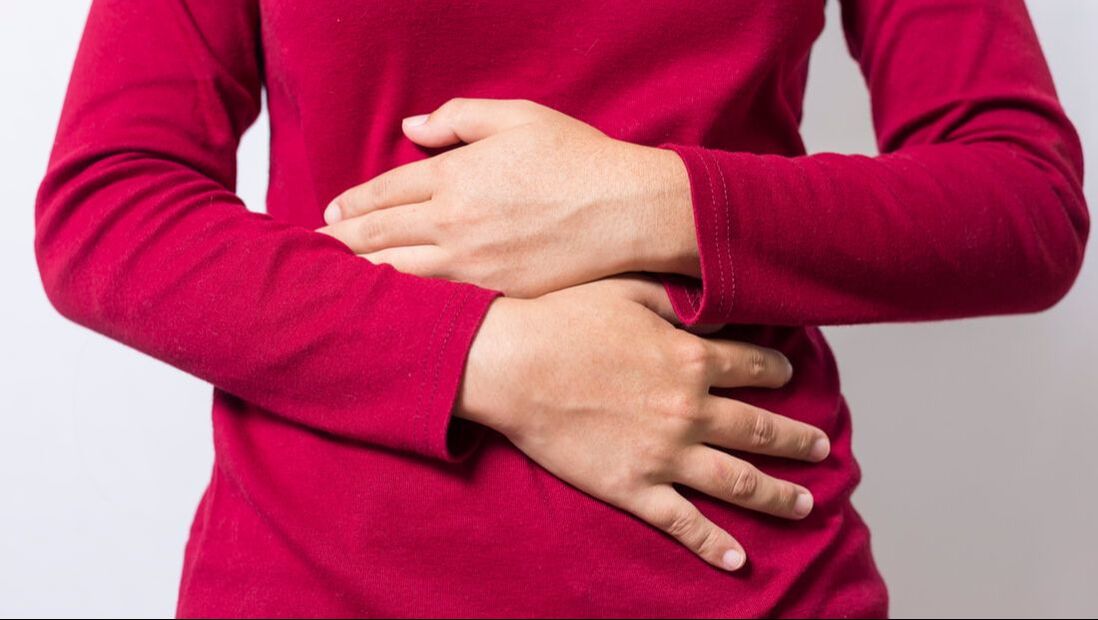




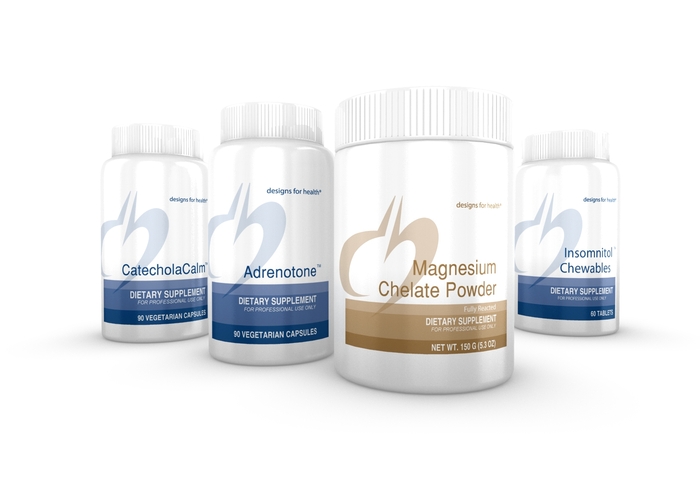
 RSS Feed
RSS Feed